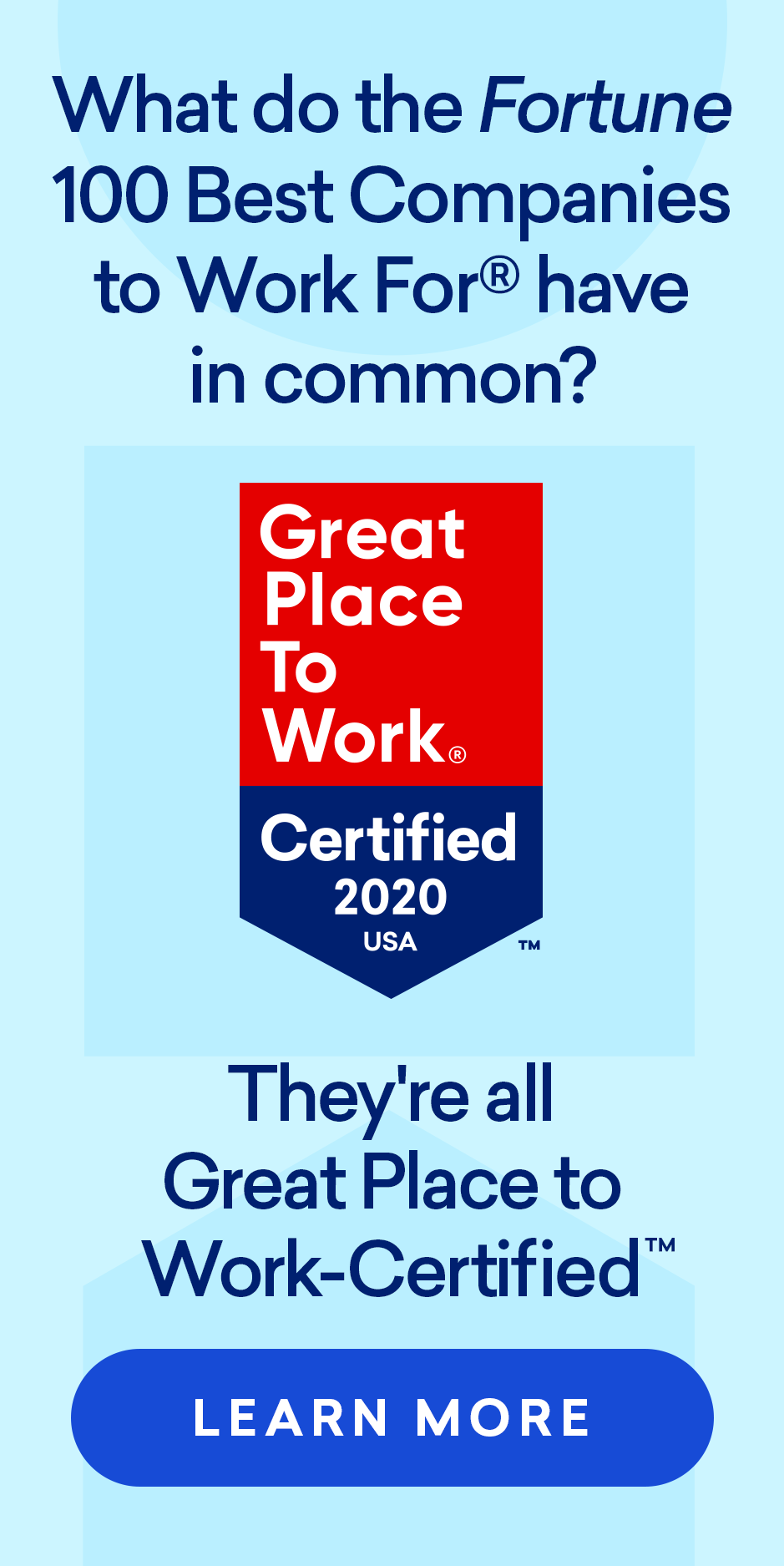The Five Elements Meaningful Programs Have in Common
All companies face the question of how to recognize and reward their employees. It has always been a cornerstone of effective management, but today, as the competition for talent becomes stronger, the ways in which organizations value their employees becomes increasingly important. But creating a recognition program is not something organizations do once and accept as perfect. Great organizations are constantly reiterating and reevaluating the way they reward employees, changing to meet the needs of their people and match the expectations of the market. As companies grow this becomes even more of a challenge and leaders are forced to rethink the way they add value to the employee recognition experience.
The Truth About Recognition
We all want and need recognition. From a very early age we crave it from parents, teachers, and friends. Our whole lives are modeled around constant social feedback and acknowledgement. So strong is our desire for positive affirmation, particularly during developmental periods, that even a neutral reaction can be perceived as a negative one. When we move to the workplace, this orientation is no different. It is key that employers focus on how they can make authentic and meaningful recognition part of their management philosophy in order to retain top talent and encourage high performance.
A recent whitepaper commissioned by Fortune 100 Best Company to Work For and Great Place to Work® Conference Sponsor, O.C. Tanner, investigates the root cause of great employee performance and how managers can tailor their workplaces to promote it. The paper gathers its conclusions from an open-ended survey where respondents were asked the question, "What is the most important thing that your manager or company currently does that would cause you to produce great work?" Respondents answered in their own words, providing a variety of responses, but some clear patterns did emerge. Overall, 37% of respondents stated that more personal recognition would encourage them to produce better work more often. While other themes like autonomy and inspiration did surface, recognition was the most dominant, illustrating the importance of affirmation, feedback and reward for motivating employees to do their best work.
The complete results are illustrated in the chart below:

How to Create a Meaningful Recognition Culture in Your Organization
Despite the fact that this study and others prove the importance of meaningful recognition, it is still something that many companies struggle to define and produce. At Great Place to Work® we see many of our clients, even those with strong cultures, face challenges when it comes to team and individual recognition on a large, organizational scale. While there is no universal program that will work at every company, there are a few key elements of authentic recognition that all organizations and managers can use to create more meaningful recognition experiences.
- Be Specific, Be Relevant – Recognition is more meaningful when it is tied to a specific accomplishment or business objective. Being specific helps employees relate the recognition to their behavior, encouraging continued strong performance.
- Be Timely – Recognition that is given months after the fact loses its meaning by degree. The longer it takes for managers to recognize employees, the more likely it is that the actions will be perceived as less authentic.
- Recognition Comes in Many Shapes and Sizes – There is a great deal of research that indicates people are motivated by more than money, but monetary gifts can go a long way when recognizing employees. Beyond a bonus or a raise, consider personal gifts, tickets to events, or other purchases that show employees their reward is personalized to them.
- Little Things Go a Long Way - While it is very important to recognize significant accomplishments and milestones, everyday thanks yous can be just as, and sometimes more motivating, to employees. Writing handwritten notes, or using the intranet to promote the good behaviors of individuals can help instill a regular culture of recognition. These thank yous and shout outs do not have to come from managers alone; they can also come from peers, which some employees may find more motivating.
- Connect to the Bigger Picture – Use recognition practices to help employees see that they are valued in the organization and an integral part of the success of their team, their department and the company overall. This is particularly key when organizations grow or change as it helps employees build a sense of security in their value to the company, motivating them to continue high performing work.
Learn Recognition from the Best
This year's Great Place to Work® Conference will feature breakout sessions on employee recognition for those interested in learning about how other companies have tackled this organizational challenge in different ways. Some particular sessions of interest include:
Driving Business Impact Through Meaningful Recognition Experiences
Presented by: Intel Corporation
At Intel, the "Great Place to Work" recognition program offers a comprehensive calendar of external and internal events to engage employees and provide meaningful experiences for them and their families. After four successful years of building out a calendar and system that provides well over 200,000 individual experiences annually for our employees and families, the program is evolving to offer new and meaningful recognition experiences at Intel. Personalized recognition experiences as a form of a department "thank you" coupled with the opportunity to enjoy experiences outside of working hours with some of our senior leaders pairs a leadership connection with a meaningful experience that leaves a memorable and favorable impression on recipients. The premise of this session centers around 1) finding and fairly deploying innovative ways to utilize exclusive employee events as a form of recognition and 2) elevating the menu of recognition offerings to compliment and best support the mission and values of the company.
Conquering the Salary Stand-Of: How Rethinking Total Rewards and Career Development Can Help You Attract and Retain the Right Employees
Presented by: West Monroe Partners
At West Monroe Partners, developing people is an integral part of their "people first" vision. Career Equity is a way of thinking and a framework used by West Monroe Partners to help people understand how to build and deploy career assets in pursuit of meaningful work and job satisfaction and do so in an intentional and purposeful way. Built on the principle that great results are achieved on purpose, not by accident, Career Equity provides tools and strategies to start and keep people on a path toward the careers they envision. And as West Monroe Partners continues to grow, both in size and profitability, the potential for greater individual rewards increases right along with it. In fact, as their people progress through the career model and lengthen tenure with West Monroe Partners, the compensation and incentives received will only continue grow meaningfully over time. They've found this to be a winning formula for attracting and keeping the right people.
To learn more about these and other sessions at the Great Place to Work® Conference, as well as to register to attend, please visit our conference website here.
Frequently Asked Questions:
What is a culture of recognition in the workplace?
A culture of recognition is a workplace environment where employee appreciation is embedded into daily practices. It involves consistently acknowledging employees' contributions, achievements, and behaviors that align with company values.
Why is employee recognition important?
Employee recognition boosts engagement, loyalty, and performance. When employees feel valued, they are more likely to stay with the company, go above and beyond in their roles, and contribute to a positive workplace culture.
How can companies create a culture of recognition?
Companies can create a culture of recognition by implementing intentional practices such as peer-to-peer recognition, manager shout-outs, celebrating milestones, and aligning recognition with company values. Consistency and authenticity are key.
What are some effective employee recognition strategies?
Effective strategies include personalized thank-you messages, public recognition, awards for achievements, and integrating recognition into performance reviews. Recognition should be timely, specific, and meaningful.
Does recognition from management make a difference?
Yes, recognition from management significantly impacts employee motivation. Studies show that a simple 'thank you' from leadership can increase the likelihood of employees putting in extra effort by up to 69%.














